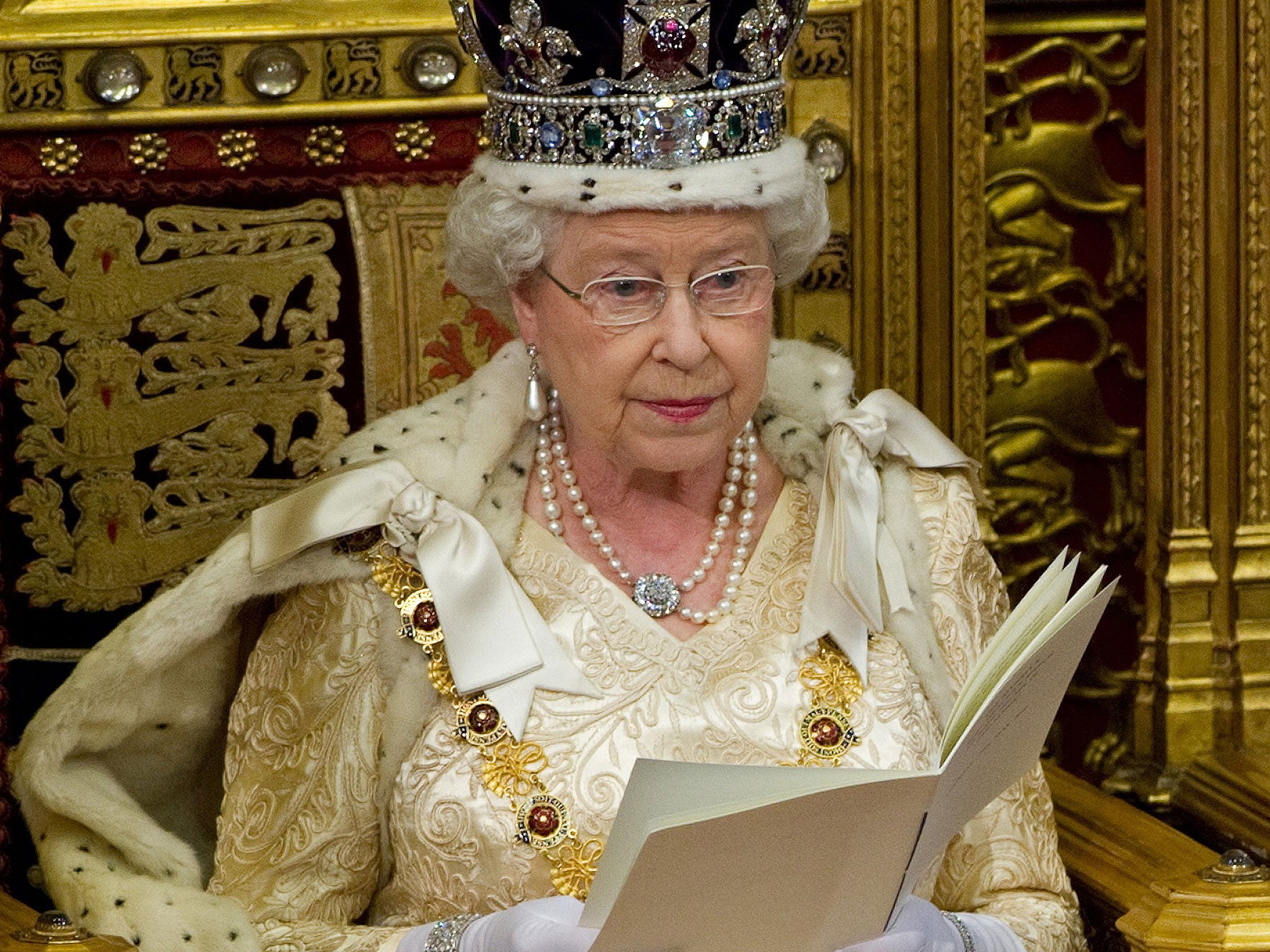The Queen’s Speech will see the return of compassionate Conservatism
He may have taken a glance at the highly unsuccessful “dog whistle” Conservative campaign for the London mayoralty, as well as his party’s disappointing poll ratings to make a renewed bid to recover the centre ground

Assuming there will be no Bill to repeal the European Communities Act 1972 in the next session of parliament, there seems little prospect of the Queens Speech whetting the appetite of Tory MPs ravenous for the red meat of Thatcherite radicalism.
At this stage in the Parliament, early enough to build a political recovery in time for the 2020 election, more might have been expected. Yet, on the evidence of the leaks so far, David Cameron and his ministers will be offering few structural change to the economy, for example. Major measures on the NHS and privatisation are conspicuous by their absence, even compared with the record of the Coalition government with the Liberal Democrats. There will, it seems, be a Bill to promote “academisation” of schools, but this will be a much-watered down version of the previous plan to compulsorily change the governance of every local authority school in the land. This particular U-turn was, wisely, executed before the legislation was given its first reading. It will be a signal that the prime minister wishes to revert, post-EU referendum, to a more consensual and centrist brand of Conservatism: a quieter life, in a way.
He may have taken a glance at the highly unsuccessful “dog whistle” Conservative campaign for the London mayoralty, as well as his party’s disappointing poll ratings to make a renewed bid to recover the centre ground. With the leadership of Jeremy Corbyn in the Labour Party, and the relative weakness of his Liberal Democrat opponents, Mr Cameron knows he has an opportunity to consolidate the image of pragmatic, compassionate Conservatism.
Even the proposed new “British Bill of Rights”, potentially very controversial as it threatens to undermine the basic human rights, is reduced to the status of a consultation exercise – presumably because the Government realises that it is an unworkable proposal that needs someone very clever indeed outside the ranks of the civil service to try and make it into a feasible form. Having rights ‘return’ to British courts whilst still allowing the European Court of Human Rights to remain the supreme arbiter is a tricky task. “Good luck with that”, the Queen may well think to herself as she reads that particular passage out. The Government also deserves a rough time in trying to limit the power of the Lords to revise bad laws, a spiteful act that spoils this Queens Speech.
Many of Mr Cameron’s other proposals will win very broad, if not universal support. Prime among these will be a radical overhaul of the care system to double the number of children placed in adoptive families. The idea of a ‘covenant’ giving children in care new rights until they are 25 is also extremely welcome, giving specialist help to young people to locate a home and a job. There will also be a new social care watchdog created to monitor the performance of local authorities. With all that has happened in children’s care over the decades, it is shaming that it has taken this long to create such a body.
Prison reform is also well overdue, and we will see Michael Gove apply his reforming instincts to this area, as he has, with mixed results, to the education sector. The new “reform prisons” echo “free schools” in awarding prison governors greater autonomy over management and budgets. Prison may or may not work in reducing crime, but it has little chance if prisons themselves are insecure, unsafe and gripped by drug abuse.
There are plenty of other “talking points”, too – not least driverless vehicles, which could revolutionise personal transport and goods haulage in the way the internal combustion engine did decades ago. But this, and much else, is about government as management, not as an ideological crusade. The country should be grateful for that mercy; Mr Cameron’s opponents will be less pleased with his studied moderation.
Join our commenting forum
Join thought-provoking conversations, follow other Independent readers and see their replies
Comments